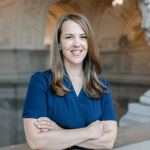
By ProFellow Founder Dr. Vicki Johnson
Recently, I gave my popular workshop on “Interview Secrets of Successful Candidates” to teach my strategies on how to prepare for interviews for fellowships and jobs, as well as law school, master’s, and PhD interviews. As a Finalist, you may be asked to participate in a wide range of interviews, from 1:1 interviews with your potential supervisor, to panel and group interviews. While in-person interviews were common pre-pandemic, the online interview has become the most common form, even for fellowship and graduate school applicants. One of the key questions applicants ask is: How do I prepare for an interview?
I recommend you never enter an interview unprepared! Preparedness will help you combat your nervousness and allow you to make a good impression on the selection committee. Preparing for an interview can seem daunting, but it doesn’t have to be. By following my three simple and proven tips, you’ll be ready to wow the selection committee and land your next big gig at the organization of your dreams.
Tip 1: Research the mission of the organization
As you prepare for an interview, it’s important you understand the mission and goals of the organization. This way you can provide informed responses that express how you will help them further their mission, whether they are a product or service company, non-profit organization, government agency, university, or any other type of organization.
First, look for a mission statement on the organization’s website. But don’t stop there! You should review information in their “About” section, review the organization’s areas of focus, the population they serve, the problems they aim to solve, and the type of people they hire to achieve this mission.
It can also be extremely useful to read recent news and press releases about the organization to understand new initiatives, products and services, research, and goals they are undertaking. Being able to articulate why you’re the right fit for this position based on your common values and commitment to the same vision is crucial to proving you’re the right candidate for the job or program.
Tip 2: Prepare examples for the questions they will most likely ask
There are certain things fellowships and other organizations look for in candidates. While your resume can demonstrate things you have accomplished, it doesn’t tell the full story of how you achieved your results. The selection committee will seek to understand how you approach problems, tackle challenges and produce positive outcomes. This is why it’s important to be prepared with specific examples of how you accomplished your goals, not just the accomplishments themselves. If the opportunity requires you to have experience in a specific skill, you can anticipate that they will ask you for more details about that experience.
Therefore, come prepared to speak about your related experience using specific examples. Before the interview, bullet in a notebook three to five key accomplishments from your past work. If you anticipate that you will need to speak about your research experience, for example, think about how you conducted research and excelled. You could bullet how you developed your research question, gathered data, conducted your analysis or wrote up the results. Also consider bulleting examples of how you overcame research challenges, or involved external stakeholders, or prepared for the research by studying new research methods. While the production of a research paper is what you accomplished, these specific examples will demonstrate how. And the more specific you can be with your examples, the better!
Remember that while you can try your best to anticipate what you’ll be asked and prepare detailed responses in advance, everyone gets thrown a curveball every now and then. It’s ok to be stumped in your interview — as long as you prepare ahead of time how you’ll respond gracefully and thoughtfully. Also, be ready to answer questions about your weaknesses and how you can frame them as an opportunity for personal growth.
Tip 3: Seek interview tips from those who have been through this interview process recently
There’s lots of advice and information on how to generally prepare for interviews, but really, all interviews are unique! The best way to prepare for a specific interview is to get insights from those related to the organization about the interview process. Making these connections is easy by utilizing resources like the professional network platform LinkedIn to connect with fellowship and grad school alumni, or past or current employees of the organization you hope to work for.
If you have an interview for a fellowship, speak to a former fellow who has been through the interview within the past five years. For graduate school interviews, it can be beneficial to speak with students currently in the program. For jobs, it can be challenging to speak to current staff since they might be involved in your interview, but speaking to a former employee or someone from a separate department in the organization can be helpful.
Don’t be afraid to leverage your own network to facilitate introductions for you. I recommend getting personal intros to former fellows, students and associates whenever possible. Ultimately, all of these connections, whether organic or intentionally developed online, will offer the personal, real-world advice you need to ace your upcoming interview.
Now that we’ve covered how to prepare for your interview, up next let’s discuss what not to do. Read “5 Things Not to Say in a Fellowship Interview” to learn common mistakes to avoid.
Best of luck — the ProFellow community is rooting for you!
Dr. Vicki Johnson is Founder and CEO of ProFellow, the world’s leading
© Victoria Johnson / ProFellow, LLC 2020, all rights reserved